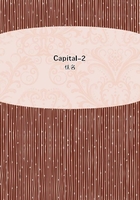
第112章
What is here called a supply -- a certain amount of standing timber or livestock -- exists relatively in the process of production (simultaneously as instruments of labour and material of labour); in accordance with the natural conditions of its reproduction under proper management, a considerable part of this supply must always be available in this form.
A similar influence on the turnover is exerted by another kind of supply, which is productive capital only potentially, but which owing to the nature of this economy, must be accumulated in more or less considerable quantities and hence advanced for purposes of production for a long term, although it enters into the actual process of production only gradually.
In this class belongs for instance manure before it is hauled to the field, furthermore grain, hay, etc., and such supplies of means of subsistence as are employed in the production of cattle. "A considerable part of the working capital is contained in the farm's supplies. But these may lose more or less of their value, if the precautionary measures necessary for their preservation in good condition are not properly observed. Lack of attention may even result in the total loss of a part of the produce supplies for the farm. For this reason, a careful inspection of the barns, feed and grain lofts, and cellars becomes indispensable, the store rooms must always be well closed, kept clean, ventilated, etc. The grain and other crops held in storage must be thoroughly turned over from time to time, potatoes and beets must be protected against frost, rain and rot." (Kirchhof, p. 292.) "In calculating one's own requirements, especially for the keeping of cattle, the distribution must be made according to the product obtained and its intended use. One must not only consider covering one's ordinary needs but also see to it that there is a proportionate reserve for extraordinary cases. If it is then found that the demand cannot be fully met by one's own production, it becomes necessary to reflect first whether the deficiency cannot be covered by other products (substitutes), or by the cheaper procurement of such in place of the deficient ones. For instance if there should happen to be a shortage of hay, this might be made good by roots and an admixture of straw. In general, the intrinsic value and market-price of the various crops must always be kept in mind in such cases, and consumption regulated accordingly. If for instance oats are high, while peas and rye are relatively low, it will pay to substitutes peas or rye for a part of the oats intended for horses and to sell the oats thus saved." ( Ibid. , p. 300.)It was previously state, when discussing the formation of a supply, [See pp. 140-146 of this book. -- Ed.] that a definite quantity, big or small, of potential productive capital is required, i.e., of means of production intended for use in production, which must be available in bigger or smaller quantities for the purpose of entering by and by into the productive process.
The remark was incidentally made that, given a certain business or capitalist enterprise of definite proportions, the magnitude of this productive supply depends on the greater or lesser difficulties of its renewal, the relative nearness of markets of supply, the development of transportation and communication facilities, etc. All these circumstances affect the minimum of capital which must be available in the form of a productive supply, hence affect the length of time for which the capital must be advanced and the amount of capital to be advanced at one time. This amount, which affects also the turnover, is determined by the longer or shorter time during which a circulating capital is tied up in the form of a productive supply as merely potential productive capital. On the other hand, inasmuch as this stagnation depends on the greater or smaller possibility of rapid replacement, on market conditions, etc., it arises itself out of the time of circulation, out of circumstances that belong in the sphere of circulation. "Further-more, all such implements and accessories as hand tools, sieves, baskets, ropes, wagon grease, nails, etc., must be the more available for immediate replacement, the less there is opportunity for purchasing them nearby without delay.